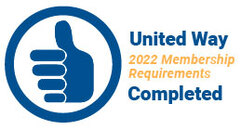|
We have looked at the neuroscience and culture of addiction. Today we look at how substance abuse affects the families of those involved.
Often in the early stages, the family has no idea that the changes they see in their loved one are drug-related. They may view them as typical teenage moodiness or rebellion. According to William Moyers, those involved in substance use become masters of manipulation, covering their behavior, using fear, guilt and pity as they exploit others. “Nobody sees what’s happening because that person is deft at conniving, scheming or outmaneuvering the world on the way to another drink or drug.” As the loved one begins the downward path into substance abuse, the signs are easy to hide. Families are often in denial about the reality of their loved one’s addiction, wanting to believe drug use is not the cause. The loved one will offer explanations of their behavior or symptoms, blaming it on allergies, tiredness, or stress. If pressed, the loved one may become defensive and begin verbal attacks on the person asking the questions, insulted by the questions or conversation. They may blame the family for the symptoms, deflecting and denying. There may be accusations of violating privacy or lack of trust, causing the parent/family member to question their original fear. The emotional intensity of the response may be out of proportion to the level of questioning. The excessiveness of the reaction may be an indication of how close the questioner is to the truth. The family may find itself treading more and more carefully around the loved one to avoid setting him off. Family dynamics may shift as the rest of the family tries to maintain normalcy and balance. They may find themselves covering for their loved one, making excuses, providing a safety net and rescuing him from consequences as they try to navigate the lies, deceptions and manipulations. The family may gradually change as they attempt to maintain balance in the constantly shifting behavior and mood of their loved one. They may have a sense that something is not right, but be unsure what is really going on. A local mother of an adult, addicted child reported “until they go off to rehab or jail, you don’t realize just how dysfunctional your life has become.” Another mom stated “addicts have an inability to face pain. Opioids help them get through their own pain. Then, it helps them avoid the consequences of how they have hurt the people around them.” Families suffer right along with the person involved in substance use. There is a constant sadness and mourning for the way the loved one used to be. There is the worry and anxiety of where they are, what they are doing, whether they are dead or alive. Some family members have expressed relief when their loved one is arrested. “At least I know she is safe and being fed when she is in jail.” Families often work harder at helping their loved one than the person who is actually using. Families can become angry, frustrated, resentful and depressed. They may disagree on the best way to deal with the problem. Other relationships may become strained as friends and family feel abandoned and neglected by the amount of time, attention, and energy the addicted one is consuming. The constant roller coaster of hope and despair is exhausting and draining. Next time: How can a family cope?
0 Comments
Your comment will be posted after it is approved.
Leave a Reply. |
AuthorLynn Saylor is the AmeriCorps member working with the United Against Opioid Abuse Initiative alongside the White County United Way. She is a major facilitator of the United Council on Opioids serving White County and a regular contributor to local media. Archives
October 2020
Categories
All
|

 RSS Feed
RSS Feed
